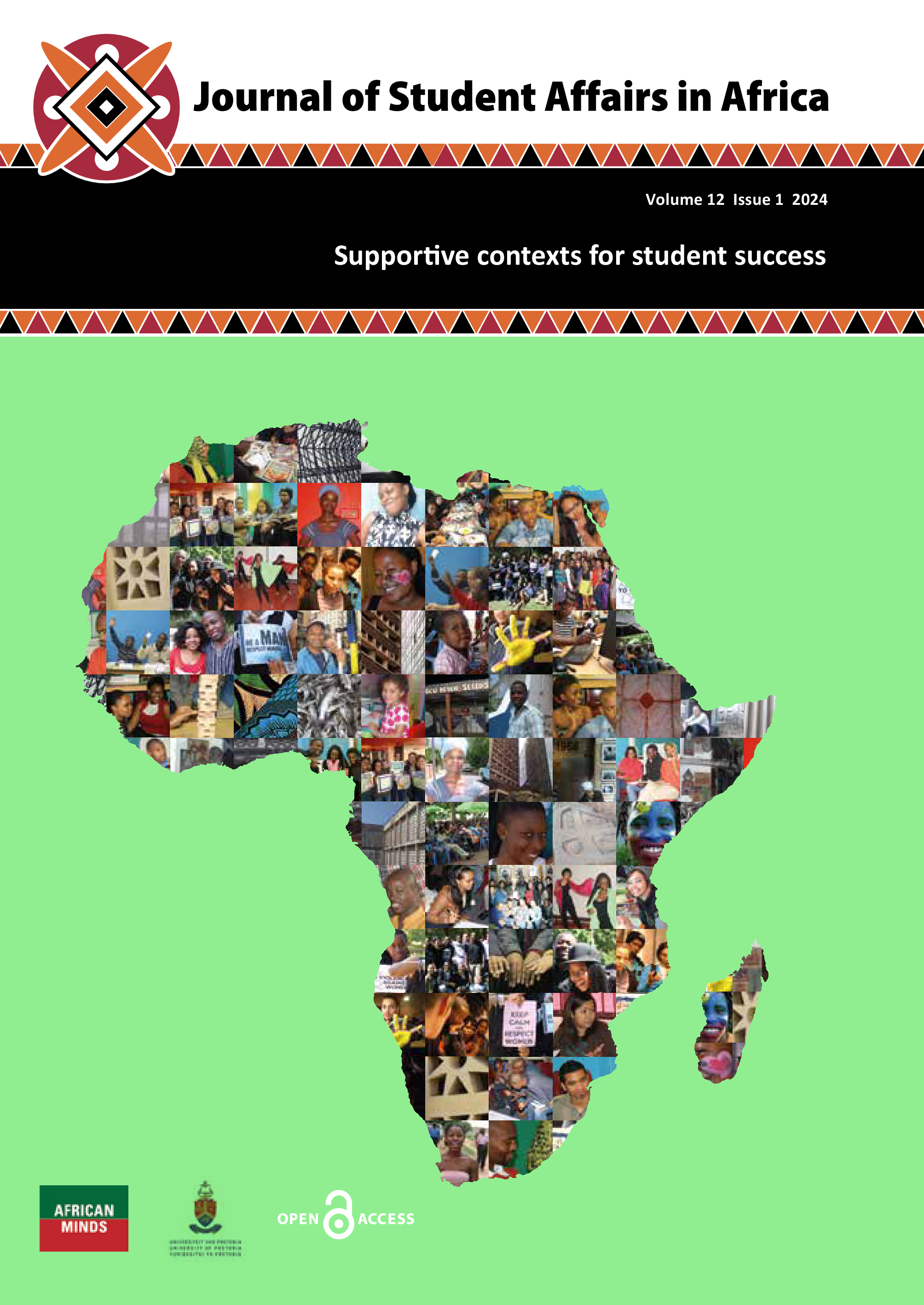Exploring first-year engineering student perceptions of peer-led study groups in a Global South context
DOI:
https://doi.org/10.24085/jsaa.v12i1.4751Abstract
The purpose of the study is to explore the advantages of study groups for first-year engineering students in a challenged Global South context. The research aims to explore how the support and resources provided by the peer-led study groups can help students cope with the stressors and challenges that are often associated with the transition to university and the demands of an engineering programme. Educational institutions prioritise student development, yet many student
initiatives overlook student agency and that understanding students’ learning approaches is necessary for effective support initiatives. A total of 40 registered engineering students, who voluntarily enrolled in the peer-led study groups, were the subjects of this study at the University of Pretoria. The research adopted a qualitative approach and aimed to explore the advantages of study groups. Data were collected through interviews and surveys with both students and study group leaders to gain their respective views on the strengths and areas for improvement of the learning community experience. The research was conducted using qualitative methods to gain a deeper understanding of students’ experiences with study groups and the associated benefits. Through participation in study groups, students benefited from the support of their peers, opportunities for alternative problem solving methods, and improved academic performance. Furthermore, the smaller group size and collaborative nature of these groups created a supportive and empowering learning environment, where students felt confident to ask questions and engage in meaningful learning opportunities.
Downloads
Published
Issue
Section
License
Copyright (c) 2024 Jessica Versfeld, Caitlin Vinson

This work is licensed under a Creative Commons Attribution-NonCommercial-ShareAlike 4.0 International License.
Authors who publish with this journal agree to the following terms:
Authors retain copyright and grant the journal right of first publication with the work simultaneously licensed under the Creative Commons Attribution Share-alike 4.0 International License that allows others to share the work with an acknowledgement of the work's authorship and initial publication in this journal.
Authors are able to enter into separate, additional contractual arrangements for the non-exclusive distribution of the journal's published version of the work (e.g., post it to an institutional repository or publish it in a book), with an acknowledgement of its initial publication in this journal.
Authors are permitted and encouraged to post their work online (e.g., in institutional repositories or on their website) prior to and during the submission process, as it can lead to productive exchanges, as well as earlier and greater citation of published work (See: The Effect of Open Access).


